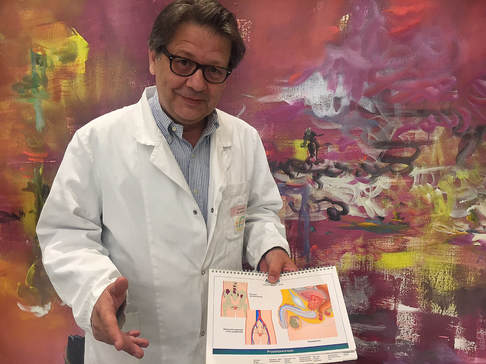The urologist does not have a good reputation among healthy individuals: allegedly, they intrude uncomfortably or even painfully into taboo zones, commonly known as the intimate area. Horror stories about examinations have a long tradition and persist stubbornly, especially among men in social circles, at the pub, and on the internet.
Admittedly, urological examinations were indeed unpleasant to painful. That was 20-30 years ago. With the invention of ultrasound, for example, or mini-cameras in delicate, movable instruments, a new era has begun. More and more often, urologists see an aha experience in pleasantly surprised patients after their visit to the practice.
Why go to the urologist at all? Plausible in case of burning when urinating, but what is the point if there are no complaints? Urological problems are often insidious because they leave little to no noticeable traces for a long time. Men – who are far more likely to be unhealthy – should be told that every age carries a urological risk. For example, testicular cancer in young males, erectile dysfunction and prostate cancer in older males, bladder distension due to prostate enlargement, and so on.
Urologists have solutions for many problems that were previously unthinkable. However, many measures are much more effective in the early stages of a disease. To recognize that, you need a professional and not the currently popular self-diagnoses on the internet.
Men tend to have a sense of invincibility in their self-assessment, as evidenced by their reluctance to visit the doctor. Women definitely set an example, even when it comes to visiting the urologist. In my experience, this is because of their more relaxed attitude towards their bodies and preventive care.
As a man, from when? Even if you think you are not a candidate due to a lack of complaints, you should have a basic examination – keyword prevention. By the age of 50 at the latest.


Dr. Reiner Simak’s main areas of expertise include: urological surgery, tumor diseases, prostate enlargement, urinary stones. Fortunately, an examination of the urinary and genital organs in the practice has become virtually painless in recent years. It is complemented by efficient laboratory tests and imaging studies such as ultrasound, so that the diagnosis can be made quickly in the vast majority of cases.


